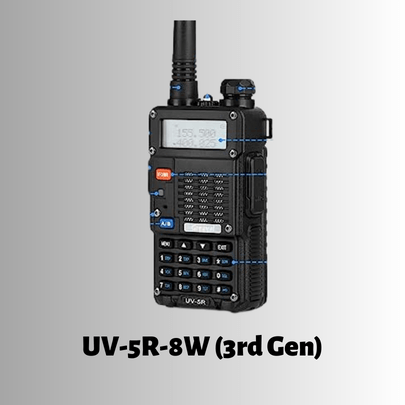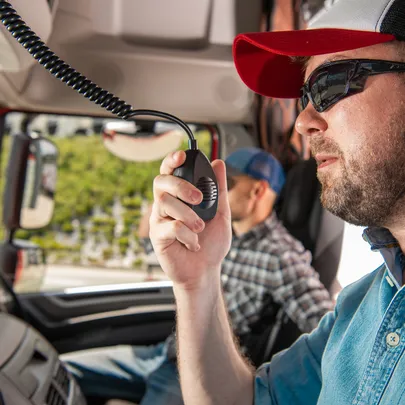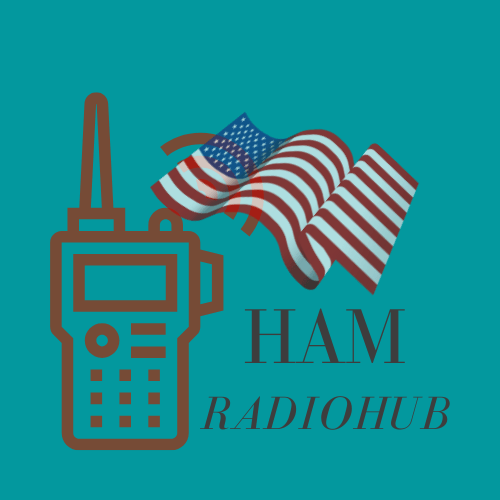“Ham radio for beginners” is an extensive guide for the people who are just starting off their journey as newbies in the world of communication. We have tried to cover all relevant issues that a beginner may face.
Ham radio for Beginners: Introduction
Ham radio also referred as Amateur radio has a history spanning of more than a century. As of today USA only has a substantial membership of more than 750000 licensed members and the figure is around 6 million globally.
A beginner has a multiple reason of getting lured to this century old hobby including Technical experience, Experimenting, Community building and Emergency Preparedness.
We will cover all general aspects of a beginner in this article. So let’s dive into “Ham Radio for beginners” guide:
Ham radio for Beginners: Why choose Ham radio?
In this era of communication; A beginner has multiple choices to choose from if he wants to communicate like CB, GMRS, FURS, GMRS etc.
But you can choose Ham Radio for many reasons:
Advantages of choosing Ham radio for beginners
- Firstly you can communicate almost around the world with fellow enthusiast with Ham Radios without being dependent of Cell towers of mobile phone infrastructures.
- A traditional radio will only allow simplex communication i.e. one way communication while Ham radio will allow you to do actual conversations.
- At the time of calamities and natural disasters when all normal communications are down; Ham radio only serves as a “Last Line of Defense”. So If you’re a Ham yourself; it can prove to be your means for public service in times of emergencies.
- Setting up Ham radio communication is relatively Cheaper compared to large conventional infrastructures.
- Using Ham radio opens up gates for Experimentation with different frequencies, modes and equipment.
Ham radio for Beginners: Best Ham Radios for Beginners
There are two choices for setting up your Ham radio communication.
- Stationary (Immobile) Ham radio station
- Mobile Ham Radio (small handheld equipment)
As a beginner “Cost” may be your concern, So setting up a big Ham radio station without gaining experience is not recommended at a beginner level.
So as a beginner later is recommended.
Best Ham radio for beginners (Quick Reference Table)
Here is a quick reference table for Best Ham radio for beginners.
 | BAOFENG UV-S9 PLUS | $ 27.00 | |
 | GREAVAL UV-5R 8W | $ 46.99 | |
 | RADIODDITY GA-510 | $ 54.99 | |
 | BAOFENG UV-82 HP | $ 69.89 |
Best Ham radio for beginners (Pros & Cons)
Lets dive into each model that is best suitable for beginners.
1. Baofeng UV-S9 PLUS

The Baofeng UV-9R Plus Portable Ham Radio is a rugged and versatile option Ham radio beginners priced at around $27.00.
It offers a high power output of 8 watts, ensuring a reliable communication range even in remote areas. This radio features a compact design, making it easy to carry and mount even on your vehicle.
Benefits:
- – High power output (8W) for extended communication range
- – Compact and rugged design
- – Water-resistant, dustproof, and shockproof
- – Comes with emergency channels and NOAA weather alerts
| Pros | Cons |
|---|---|
| Wide frequency range | Difficult to Operate for Beginners |
| LED flashlight | Limited Product Support |
| Long-lasting battery | |
| Excellent audio quality |
2. Greaval UV-5R 8W

The Greaval UV5R Dual-band ham radio offers adjustable power output (High/Medium/Low) and supports keyboard or PC programming.
Priced roughly around $46.00
It has a rechargeable 1800mAh Li-ion battery for 12-20 hours of use, with an extra battery included. It allows dual-band standby for simultaneous monitoring and transmission on two channels.
| Pros | Cons |
|---|---|
| Cheapest model amongst all | Limited frequency range |
| Very use-friendly and best for beginners | Low power output |
| Compact and sturdy | |
| Clear reception |
3. Radioddity GA-510

Priced at about $54.00,The Radioddity GA-510 Dual Band Handheld Ham Radio is also a choice for Jeep owners.
It has a high power output of 10 watts, making it reliable even for hilly and terrain areas. Small and Lightweight makes it easy to carry.
It also offers dual-band operation and adjustable power levels, providing flexibility in communication.
Benefits:
- – High power output for enhanced communication range
- – Compact and rugged design
- – Dual-band operation (VHF/UHF)
- – Programmable channels for customization
| Pros | Cons |
|---|---|
| Backlight LCD | Difficult to operate for beginners |
| Long-lasting battery | Programming software required |
| VOX (Voice Operated Transmit) function for hands-free operation | |
| Accessories like Earpiece, Cable available |
4. Baofeng U-82 HP

The BaoFeng UV-82HP is another budget friendly option which is below 100 bucks (around $69.00) for Ham radio beginners.
It operates in both VHF and UHF bands, offering flexibility in communication. The radio features a compact and durable design, making it suitable for home and off-road use.
Benefits:
- – Dual-band operation (VHF/UHF) at a budget-friendly price
- – Compact and durable design
- – High power output (7-8 watts)
- – VFO/MR mode for easy channel selection
- – Dual PTT buttons for convenience
| Pros | Cons |
|---|---|
| Emergency Channels available | Battery Life is limited |
| Supports FM mode | Additional Programming software required |
| Backlight display available | |
| Accessories like earpiece, antenna given |
Ham radio for Beginners: Licensing

Well you can not just go out there and turn on any radio equipment and make communication. You need a proper license for it and you will have to make sure that you’re operating on the frequency or bands which will not interfere with the other radio communications taking place around you such as police radio, public radio, aircraft radio waves, mobile phone signals etc.
There for the ITU has allotted specific bands for specific use only and onwards the countries authorise them for public use.
In order to operate on HAM radio frequency bands, one must have a valid license to operate it and he/she must be aware of the procedures and protocols for operating amateur radio, otherwise it is illegal to operate a ham or amateur radio.

In the United States, amateur radio licenses are issued by the Federal Communications Commission (FCC). The FCC is an independent government agency responsible for regulating interstate and international communications by wire, satellite, and radio.
Ham radio for Beginners: Examination
To obtain an amateur radio license, also known as an amateur radio operator’s license or ham radio license, you must pass an examination that tests your knowledge of basic electronics, radio theory, and regulations. The examination is administered by organizations called Volunteer Examiner Coordinators (VECs), which are accredited by the FCC to administer amateur radio license exams.
Visit here If you’re looking for Paid Classes for Ham radio exam.
Choose your license class
Before applying for HAM radio license exam you must choose the license class you’re eligible for. There are three (3) classes of HAM radio license in the USA:
- TECHNICIAN CLASS HAM RADIO LICENSE
- GENERAL CLASS HAM RADIO LICENSE
- AMATEUR EXTRA CLASS HAM RADIO LICENSE
Each class of license grants the holder a different level of privileges, including the ability to operate on different frequency bands and to use different modes of communication. To obtain a higher class of license, you must pass an examination that tests your knowledge of more advanced radio theory and regulations.
Also Read:
9 hand picked Ham Radio Books for Beginners
How to get a Ham radio license in USA: Easy Guide
Ham radio for Beginners: Community Building
Once you have obtained your Ham radio license, you can start experimenting and also start building your community with the like minds out there. There are several things you can do for community building:
Join Ham radio clubs:
You can find Clubs and forums of enthusiasts at local level and online also and be a part of it.
Attend Ham radio events:
Keep an eye on news and resources and see if there are upcoming events related to ham radio and attend it as soon as you get chance.
Host workshops:
Organize and host workshop regarding this beautiful hobby at your place or nearby schools etc and spread awareness about it to other beginners.
Participate in Contests:
Do participate in Ham radio contests if you get chance; this will test your knowledge and sharpen your radio skills.
Get On Air regularly:
Be consistent in being On Air and establish your strong presence in the Ham radio community.
Ham radio for Beginners: Safety & Regulations
Once you have your hand on the license following things you must understand on safety and regulations point of view:
RF exposure & safety
Exposure to RF (Radio frequency) can prove hazardous so it is advised to do proper study of safe distancing from transmitting antennas. Also consider studying about Proper Earthing/Grounding to minimize the risk factors.
FCC Regulations
The Federal Communications Commission (FCC) regulates amateur radio in the United States. Make sure you are familiar with all the Rules and Regulations laid down by the FCC and follow it strictly.
Operating Ethics
Follow Operating Ethics while transmitting by taking care of things such as avoiding interference, respecting fellow hams transmitting simultaneously, avoid transmitting on unauthorized bands and refrain from transmitting inappropriate content.
Ham radio for Beginners: Conclusion
All and all as a Ham radio is a very good choice for beginners. Not only it opens the doors for skill development but also allows you to go “Global” with the community.
So if you’re still comparing other radio communication methods; Ham radio or Amateur radio is unique choice as it will never get outdated because of it’s importance in emergency scenarios.
We hope that this “Ham radio for Beginners” guide has helped you with your queries. Feel free to comment your thoughts and suggestions.
FAQs on Ham radio for Beginners
1. Can I communicate with other countries with Ham radio?
Absolutely! Ham radio allows you to communicate globally.
2. Is Morse code still relevant in ham radio?
Although it is not mandatory now a days, Morse code remains a respected and enjoyable aspect of this hobby.
3. Which factors to consider while choosing right transceiver for my needs?
Consider factors such as frequency bands, modes of operation, and your budget when selecting a transceiver.
4. What is the significance of DXing in ham radio?
DXing involves making contacts with stations in distant or rare locations, adding an element of challenge and adventure to the hobby.
5. How can I practice for the licensing exam?
There are numerous online resources, study guides, and practice exams available to help you prepare for the licensing exam.
1. Here are Best Books for Ham radio beginners.
2.Visit here if you want to go for Paid Classes for Ham radio exam.
Other Blog Posts from the category

